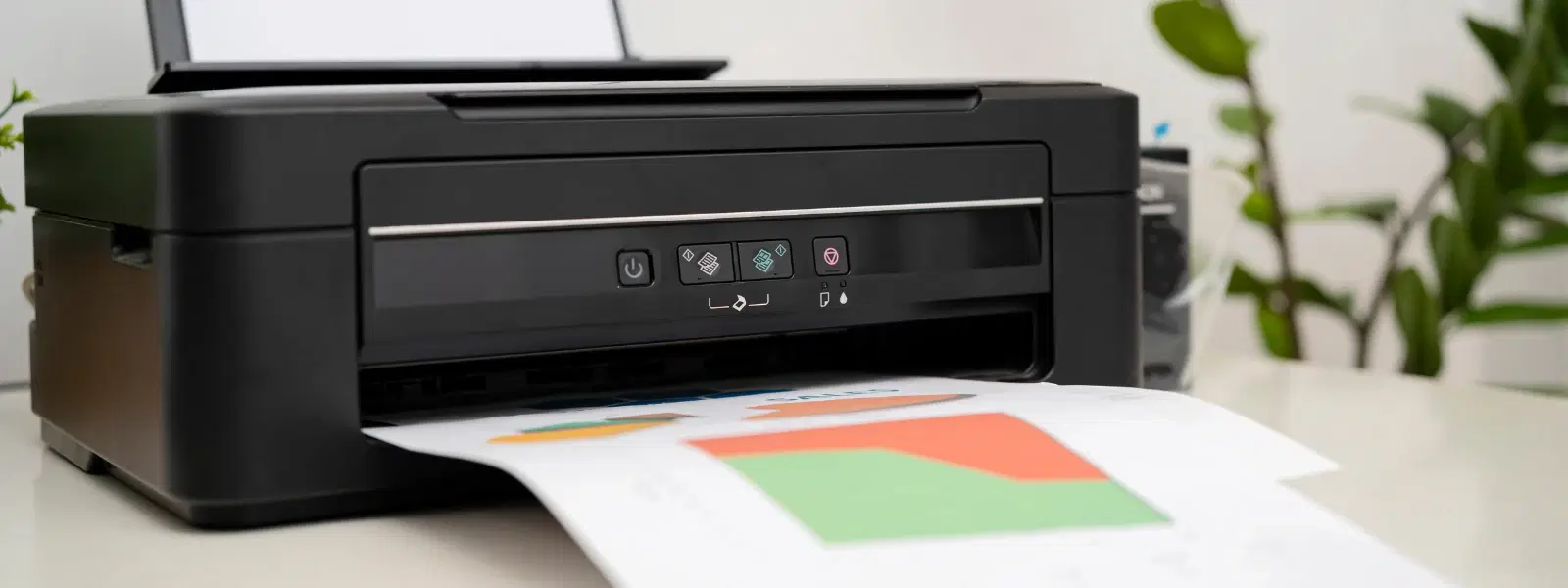
Consumer Electronics
•04 min read
Imagine creating beautiful, vibrant designs on fabric with your printer—only to see them fade after the first wash. This post explores how to make printer ink permanent on fabric, tackling a common challenge for creative souls, from customising clothing to crafting unique home décor. By learning practical techniques, tools, and tips, you can achieve lasting, brilliant prints on your favourite textiles. When you shop on Tata Neu, not only can you explore creative solutions like this, but you also earn NeuCoins that add value to every purchase.
Many standard printer inks are designed to work on paper rather than fabric. The ink formulation often lacks properties that bond permanently with textile fibres, which can lead to fading or smudging after washing. Additionally, the type of fabric plays a significant role. Fabrics such as synthetic blends may resist ink absorption, while natural fibres like cotton offer a more absorbent surface – though not without their own challenges.
When aiming to make printer ink last on fabric, opting for the right textile is key. Cotton and other natural fabrics tend to work best because they absorb ink better than many synthetic materials. This increased absorption helps the ink adhere more firmly, giving your design enhanced longevity. The texture of the fabric is also important, as smooth surfaces can facilitate a more even distribution of ink.
A highly effective method to secure your printed design is through heat setting. This involves using an iron or a heat press to bond the ink to the fabric’s fibres. For optimum results when applying heat, always use a protective layer such as a piece of parchment paper to prevent scorching. It is vital to ensure that the heat is evenly distributed across the printed area to avoid any patchiness or smudging. Keep the process simple and safe by ensuring your workspace is well-ventilated.
Apart from heat, there are alternative approaches to making ink permanent on fabric. Some enthusiasts use steam setting or even chemical fixatives designed for textiles. While these methods can offer additional durability, they come with their own pros and cons. For instance, steam setting can work quickly but may require multiple sessions, whereas chemical fixatives need precision in application and can affect the fabric’s feel. Always follow safety guidelines and test on a small fabric area first to ensure the fixative does not alter the texture of your material.
Expert Tip: Heat-setting is one of the most reliable ways to make printer ink permanent on fabric. For best results, use a layer of parchment paper as a barrier between your iron and the fabric, protecting your design from any potential scorching.
Embarking on a project involving printing on fabric techniques starts with having the right tools. Essential supplies include a printer capable of handling fabric-safe ink, freezer paper to stabilise the textile during printing, and a reliable heat press or household iron to set the ink. These tools ensure that the application is smooth and the printed design is as durable as possible.
The market now offers a range of solutions designed specifically to boost printer ink durability on cloth. There are fabric-specific inks and pre-treatment solutions that create an optimal surface for your design. Some DIY enthusiasts also turn to vinegar fixatives as a practical alternative—a method that can be both economical and effective when used correctly. Explore innovative tools and products on Tata Neu, where you can also enjoy express delivery and exceptional customer support for your creative needs.
A common issue faced during the process is ink running or smudging. Ensuring that the fabric is completely dry before printing is crucial. Additionally, stabilising the fabric with freezer paper during the printing process can help avoid unwanted movement or wrinkling, which could cause the ink to run.
After setting your design, proper care is essential for long-lasting prints. Follow specific washing instructions that help in preserving the integrity of the design. Testing a small print area for longevity before committing to a larger project can provide valuable insights. This simple step enables you to confirm whether your chosen method truly fixes the ink on fabric effectively.
Use heat-setting techniques like ironing or a heat press to bond the ink securely with the fabric fibres.
Combining heat-setting with fabric-safe inks or pre-treatment solutions works best to ensure the design remains intact.
Seal the ink by applying heat for the recommended duration and use parchment paper during the process to protect the design.
Ensure the fabric is dry before starting, and utilise freezer paper to keep the fabric stable during printing and heat application.
Natural fabrics like cotton are ideal due to their absorbent nature which facilitates better uptake and retention of the ink.
Making printer ink permanent on fabric doesn’t have to be a complicated process. Choosing the right fabric, using effective heat-setting techniques, and following proper care instructions are all fundamental steps towards ensuring your designs stay vibrant and durable. With these insights, you can explore new artistic avenues and confidently undertake projects involving transfer printing onto fabric. Enjoy experimenting with permanent ink for textiles and relish the satisfaction of seeing your creative endeavours come to life for years to come. Shop on Tata Neu to find all the tools and materials you need, earn NeuCoins with every purchase, and enjoy express delivery to bring your projects to life faster.